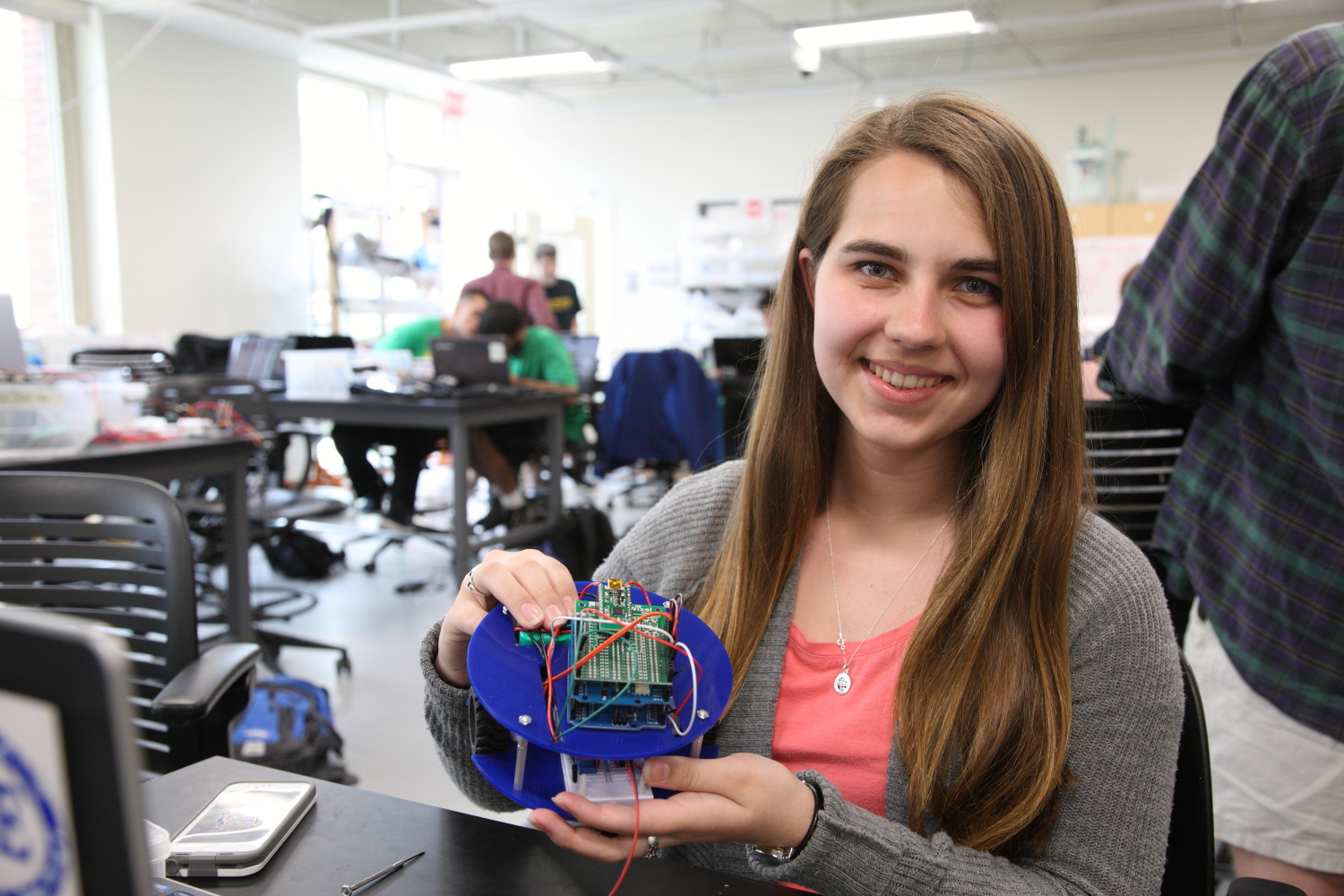In Greg Lewin’s “Intro to Electromechanical Systems” course at the University of Virginia this spring, second-year engineering students have turned simple miniature greenhouses from IKEA into high-tech units that can be remotely heated or cooled simply by entering new temperature settings into a website.
It’s the kind of complex system that combines multiple engineering disciplines, and the students building it belong to the School of Engineering and Applied Sciences’ Technology Leaders Program.
The program, which accepts second-year students who are majoring in electrical and computer, mechanical or systems engineering, has seen rapid growth since it was launched in 2008 with 13 students. The 2015 group of 35 second-year students is the largest yet, joining 32 third-years and 18 fourth-years in the program.
The goal is to shape engineers “who not only have deep knowledge in one discipline, but broad knowledge across the board,” said Lewin, a lecturer in systems and information engineering, who notes there is a demand in industry for graduates who can work on and lead interdisciplinary teams. “They all have to do a little bit of everything.”
Reid Bailey, the program’s lead and associate professor of systems and information engineering, says an increasing number of students are interested in the program because of its opportunities to do hands-on design – early and often – and to be part of a smaller program within a large university. There’s also a sense that they’ll be more attractive to employers.
The program, which received initial support from the National Science Foundation and receives additional support from various corporate donors, partners with companies including Lockheed Martin, Leidos and MITRE on student internships.
Bailey and Lewin are putting pieces in place to try to turn the program into a minor.
Students apply for the program in the spring of their first year.
“I applied because I wanted to get a chance to do hands-on projects right off the bat,” said Kathleen Galligan, a mechanical engineering major.
Under the program, Galligan has participated in an outreach project to a local elementary school, teaching children how to assemble circuit parts to make miniature cats and dogs that move, light up and make sound.
Participating in the program, she said, “helps you work with different kinds of people who don’t have the same skill sets.”
In Lewin’s course, students from the four different majors in the program learn about microcontrollers, data storage, dynamic systems and sensor and amplification circuits.
For the greenhouse project, students employed motors to raise the greenhouse lid for cooling; incorporated resistors for heating; wrote code to access an online database; and used 3-D printers to make mounts and connectors for the motors.
The system “constantly checks to see if it has a new set point on the server,” said Brian Team, a computer engineering major. “At home in California, I could change the set point on my greenhouse.”
If not for the Technology Leaders Program, Team notes, the only part of this project he would have been involved with was the coding on the microcontroller. “It’s going to be nice entering the job field with such a well-rounded understanding of [multiple] types of engineering,” Team said.
The program also focuses on community building and requires students in all three years of the program to collaborate, Bailey said.
The outreach program at local schools is one example of this. Another is “Global StoryCorps,” a partnership with the School of Architecture and the International Studies Office to develop a mobile “space” for documenting U.Va.’s global reach, akin to the “Story Corps” project heard on NPR. Technology Leaders Program students are adjusting the device technology in order to record the stories of people from other countries who came to U.Va., as well as students who have studied abroad.
“We go beyond just our community,” said Victoria Forbes, a systems engineering major. “In the TLP, you learn a lot from every single project that you do.”
Media Contact
Article Information
June 10, 2015
/content/technology-leaders-program-shapes-well-rounded-engineers

